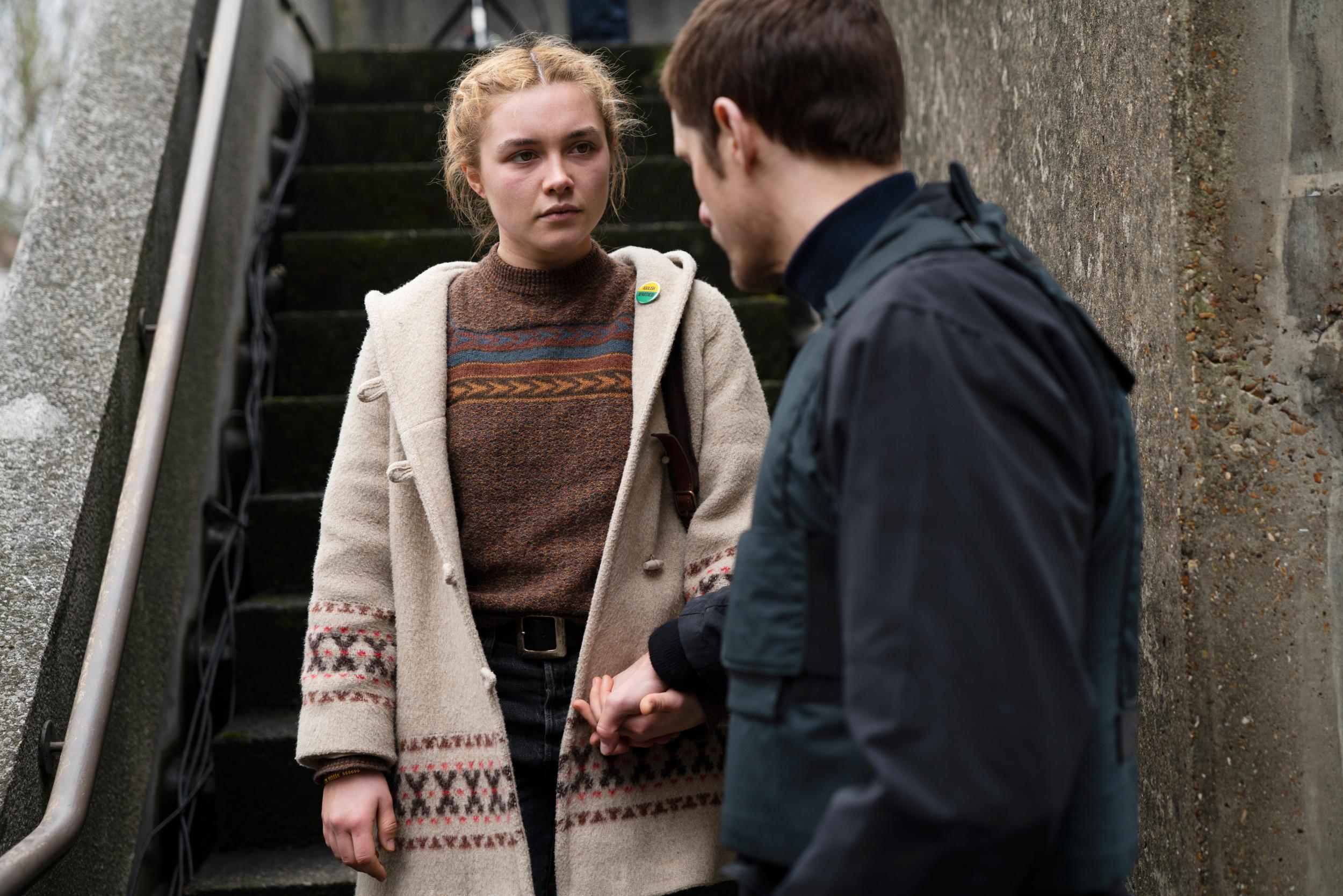The Little Drummer Girl review, episode six: A depressing and powerful conclusion
As Park Chan-wook’s intriguing fiction within a fiction comes to an end, we are no closer to getting any answers

Your support helps us to tell the story
From reproductive rights to climate change to Big Tech, The Independent is on the ground when the story is developing. Whether it's investigating the financials of Elon Musk's pro-Trump PAC or producing our latest documentary, 'The A Word', which shines a light on the American women fighting for reproductive rights, we know how important it is to parse out the facts from the messaging.
At such a critical moment in US history, we need reporters on the ground. Your donation allows us to keep sending journalists to speak to both sides of the story.
The Independent is trusted by Americans across the entire political spectrum. And unlike many other quality news outlets, we choose not to lock Americans out of our reporting and analysis with paywalls. We believe quality journalism should be available to everyone, paid for by those who can afford it.
Your support makes all the difference.In last week’s episode of The Little Drummer Girl (BBC1), Commander Picton, Charles Dance’s contemptuous UK intelligence officer, recalled torturing a young Israeli man decades earlier in a failed attempt to extract information. “When I let him go,” he said, “I thought to myself, ‘God if I haven’t made a little drummer boy right here, ready to bang his gong into the next battle they find for him, I don’t know what I’ve done’.” The question heading into tonight’s final episode was this: into which battle will our little drummer girl be marching?
Charlie, whose moral flip-flopping would be infuriating if it wasn’t for the warm, nuanced charisma with which Florence Pugh imbues her, is newly returned from the exhilarating hell of her Lebanese training camp. She was there under false pretences, ostensibly to be trained as a pro-Palestinian terrorist but actually as an informant for Israeli spies. But while she was there, Israeli airstrikes wiped out the children she had played with minutes before. Her loyalty to Mossad, fragile to begin with, now seemed untenable.
Now, she finds herself face to face with Khalil (Charif Ghattas), the mastermind behind a series of bombings that have taken place throughout Europe, and whose dead brother Salim she is pretending to have loved. After ordering Charlie to take off her clothes and turn in a circle (an instruction that will prove crucial to a later twist but which director Park Chan-wook films without any lecherous, lingering camerawork), Khalil decides she can be trusted, and carefully assembles a bomb which she is expected to plant. Whether Charlie is planning on going through with her part in a planned attack on an Israeli lecturer at a London university, or betraying Khalil, is as unclear as ever.

There is a meta element to The Little Drummer Girl that makes it even more perplexing. This is a fiction within a fiction within a fiction, its artifice so precariously constructed, with layer upon layer of feints and performances, that the whole thing threatens to topple. That it just about manages not to do so is surely a sign it has succeeded.
Where tonight’s series denouement falls a little flat is when Charlie isn’t onscreen. As Alexander Skarsgård (who plays Gadi), so impressive elsewhere in dramas such as Big Little Lies, has been the series’ weakest link. Through no fault of his own though. In the last few episodes in particular, Gadi is given almost nothing to do but mope after Charlie – who, let’s face it, he’s only actually met a handful of times. Still, it makes a change from the more common narrative, in which the man is out doing, and the woman is at home waiting.
Everyone here, in fact, besides Charlie and Khalil, is waiting. At times, it renders the episode a little sluggish – as stagnant as the air in the minivans they’re all crammed into – but you have to applaud Chan-wook for marching to the beat of his own drum.
Eventually Khalil, who wrongly believes that the university attack went off without a hitch, unwittingly triggers a signal to the Israelis and the British that they should storm into his house. Gadi promptly shoots him dead, but if he expected a hero’s welcome from Charlie he was mistaken. She runs straight to Khalil’s side and sobs over his lifeless body. A week later, another terrorist attack in Amsterdam leaves 15 dead. Nothing has changed.
“You cannot kill the devil,” says Michael Shannon’s Kurtz. “Only the man performing him.” There are no winners or losers here, and no good or evil either. It is a depressing, and powerful, conclusion.
As for the question of Charlie’s loyalty, what makes this show so enthralling – and indeed maddening – is that we will probably never know. And neither, it seems, will she.
Join our commenting forum
Join thought-provoking conversations, follow other Independent readers and see their replies
Comments